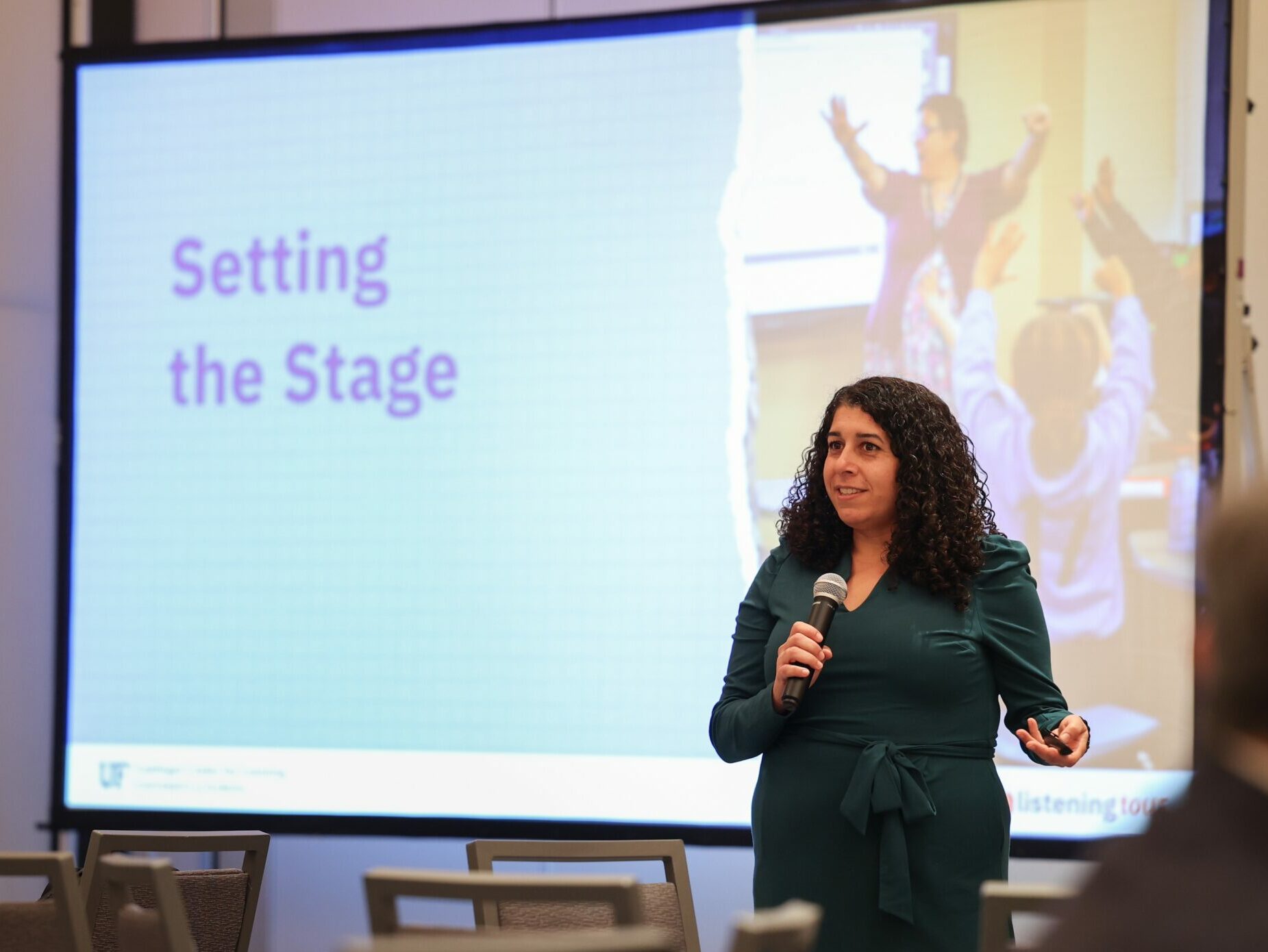
Lastinger Listening Tour Math Summit
December 12, 2024
On December 12, 2024, (12 + 12 = 24) the Lastinger Center hosted the Listening Tour Summit to collaborate and advance mathematics education in Florida.
Over the course of 10 weeks in the fall of 2023, the UF Lastinger Center Listening Tour team traveled from the Panhandle down to the Florida Keys to listen to students, educators, leaders and policymakers and gather their perspectives on mathematics education in Florida. Key community stakeholders convened with the team to share the most prominent pain points that mathematics educators and education facilities face in and out of the classroom.
Through interviews, surveys, round-table discussions, meetings and other convenings, the Listening Tour team gathered robust data about these challenges and set to work synthesizing common themes and struggles from educators all over the state and serving all types of communities.

At the Listening Tour Math Summit, the Lastinger Center Mathematics Team unveiled the Listening Tour Briefs and the Landscape Analysis. Covering five key areas, these briefs take a deep dive into specific key findings and recommendations from the Listening Tour. They then discussed further actions to take in the pursuit of changing the education landscape, engaged participants in hands-on mathematics practice, and provided ideas and resources for educators to use in their day-to-day work.
Listening Tour Briefs
The Lastinger Listening Tour: Landscape Analysis is a summary of the Listening Tour from start to finish. It reviews the purpose and goals of the tour, the methods of data collection, and a robust overview of the data and conclusions that the collected data provided.
